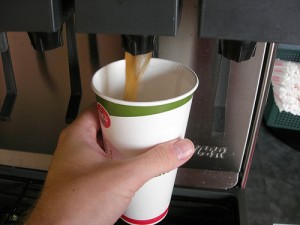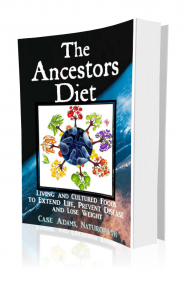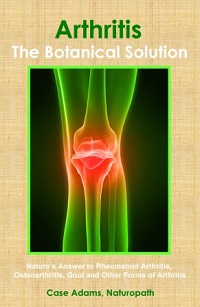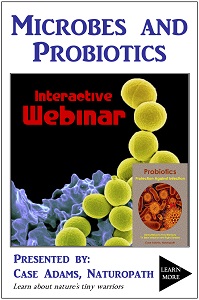Sugary Sodas Proven to Increase Blood Pressure
Science has confirmed what we have observed in clinical medicine: That sugary sodas increase hypertension – also referred to as high blood pressure.
Multiple studies prove sugar hypertension connection
Researchers from the Yale’s Griffin Prevention Research Center and the University of New England have confirmed that beverages sweetened with refined sugars significantly increase the incidence of blood pressure.
The researchers conducted a review of large scale population cohort studies. They found a total of twelve large studies, which involved a total of 409,707 human participants. Among these were six cross sectional studies.
All twelve of the studies concluded that refined sugar-sweetened beverages increased blood pressure, and ten studies showed “statistical significance.” Five of the 12 studies found sugary beverages directly increased blood pressure and seven of the 12 studies found that sugary beverages increased the incidence of high blood pressure (hypertension).
The researchers concluded new recommendations to doctors advising patients:
“Restriction on sugar-sweetened beverage consumption should be incorporated in the recommendations of lifestyle modifications for the treatment of hypertension. Interventions to reduce intake of sugar-sweetened beverages should be an integral part of public health strategy to reduce the incidence of hypertension.”
An example of one of these studies came from the University of California at San Francisco, where 4,867 teenagers between 12 and 17 years old were tested for blood pressure and sugary beverage consumption. The researchers found that those who drank the most sugary drinks had hypertension z-scores .17 higher than those who consumed less sugary sodas. Z-scores relate blood pressure and other conditions with the height of the child compared with other children.
This same study found that children consuming the most sugary beverages had higher serum uric acid levels as well. Higher uric acid levels are related not only to hypertension, but also to kidney diseases.
In another study, this from London’s Imperial College, researchers compared blood pressure readings and urine collections with 24-hour diet records for 2,696 men and women between 30 and 59 years old.
The researchers found that one serving per day of a sugary beverage increased average systolic blood pressure by 1.6 mm Hg and diastolic blood pressure by 1.1 mm Hg. Two sugary beverages a day upped systolic blood pressure by 3.4 mm Hg and diastolic blood pressure by 2.5 mm Hg. These differences were adjusted to weight and height.
Sugar and blood pressure
Blood pressure relates to the health of the arteries along with the kidneys and the heart. We discussed the relationship between sugar and artery disease in this article. The relationship between sugar and uric acid levels was determined in multiple studies in addition to the one above. Uric acid levels go up with greater insulin resistance and are also associated with type 2 diabetes.
One medium-sized cup or can of soda will contain from 20 to over 40 grams of refined sweeteners – often high-fructose corn syrup. HFCS is one of the worst offenders because of the immediate absorption of the simple fructose within HFCS. This immediately spikes blood sugar levels.
WHO announces draft recommendations on sugar consumption
The World Health Organization just released a draft of their new guidelines on sugar consumption. They suggest 5% of our total calories should come from added sugars – a decrease from the 10% they suggested back in 2002.
To give you an idea of what 5% is, an average adult (normal weight/height) would need to limit their added sugar consumption to about 25 grams. Currently, the average American consumes about 17% of their calorie intake as refined sugars. This is often termed as “added sugars.”
Thus one soda could well be over that limit. And then there’s all the added sugars hidden in so many processed foods – even foods considered “healthy” have added sugars.
REFERENCES:
Malik AH, Akram Y, Shetty S, Malik SS, Yanchou Njike V. Impact of Sugar-Sweetened Beverages on Blood Pressure. Am J Cardiol. 2014 Feb 12. pii: S0002-9149(14)00639-0. doi: 10.1016/j.amjcard.2014.01.437.
Nguyen S, Choi HK, Lustig RH, Hsu CY. Sugar-sweetened beverages and blood pressure in adolescents. J Pediatr. 2009 Jun;154(6):807-13. doi: 10.1016/j.jpeds.2009.01.015.
Brown IJ, Stamler J, Van Horn L, Robertson CE, Chan Q, Dyer AR, Huang CC, Rodriguez BL, Zhao L, Daviglus ML, Ueshima H, Elliott P; International Study of Macro/Micronutrients and Blood Pressure Research Group. Sugar-sweetened beverage, sugar intake and blood pressure: international study of macro/micronutrients and blood pressure. Hypertension. 2011 Apr;57(4):695-701. doi: 10.1161/HYPERTENSIONAHA.110.165456.



















